The summer before my freshman year
Ahead of the fall semester, eight VCU graduates and students share memories about their last summers before college and their advice for the newest Rams arriving on campus
By James Irwin
The dog days are coming, and the Richmond air is growing thick with humidity and the anticipation of all that is to come. And then it will happen — subtly at first and then unmistakably. The summer heat will begin to relent. The days will shorten. And a palpable energy will arrive at Virginia Commonwealth University, as thousands of students, some for the first time, begin a new academic year.
Jonathan Moore (B.S.’01/H&S; M.Envs.’04/LS) knows this rhythm well. The former biology professor first came to VCU in 1997, a self-described “gregarious and extroverted” 18-year-old from nearby Chesterfield County. He spent that last summer before his freshman year doing what most college-bound 18-year-olds do: visiting friends, spending time with family and, as best he could, trying to both experience and preserve the moment in front of him and the magic of its possibilities.
He received plenty of guidance about what to expect when he arrived at school and how to succeed once he got there: meet with your professors; start off strong academically; don’t run yourself ragged chasing a 4.0 GPA. But one of the most memorable pieces of advice he received? Know your way around campus.
“Identify where my classes were, like go around campus and identify where the buildings are,” he says. “And if [I could] get into the buildings, identify where the classes are, so that [I wouldn’t be] fumbling around looking at my schedule and a map on the first day.”
Moore laughs now as he recalls the simplicity of that guidance. But in truth, it “was a really big piece of advice,” he says. And 25 years later, after more than a decade teaching in the College of Humanities and Sciences and dispensing his own nuggets of wisdom to VCU students — some pragmatic, some philosophical — Moore finds himself at the beginning again. In May, he completed his final semester as a biology professor, and this summer he is back in the classroom as a student in the School of Education as he begins a career change from teaching to counseling.
Ahead of the fall semester, Moore and seven other VCU graduates, faculty, staff and students spoke about their last summers before college, their memories from their first semesters on campus and their advice for VCU’s newest students.
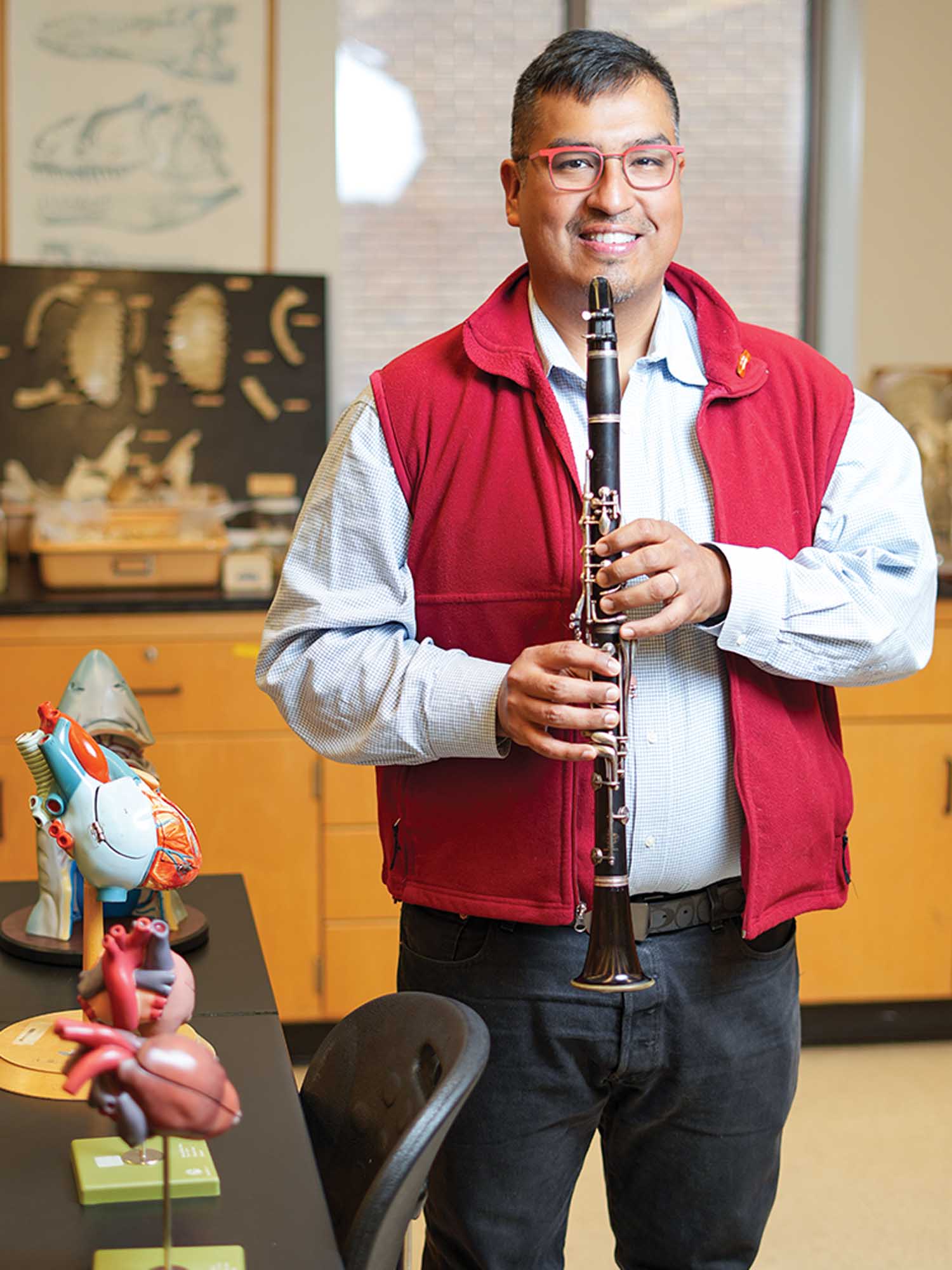
Jonathan Moore
(B.S.’01/H&S; M.Envs.’04/LS)
Graduate student, School of Education
“The summer was just anticipatory. I was looking forward to immersing myself in being freer, living in the dorms and also getting to meet other people. At the time I was pre-med. I was in the Honors College. But I also did music and theater [before VCU], and I wondered how much I could still be involved in that.
I met with somebody in the music department about earning a minor. I actually majored in biology and minored in music performance. There’s a special place in my heart for VCU for several reasons, but that music minor paid off in ways I could not have even comprehended. Because I was involved in music, I became involved in the pep band, so I got to go to basketball games, and that was a completely different community and experience.
I’ve told students this before, but it sort of comes back stronger now because I’m changing careers: You don’t have to know what you want to do at 17 or 18 years old. It’s perfectly fine if you change your mind. I didn’t go into the medical field, and it wasn’t because I don’t have the intellectual capability to do it, but because I didn’t want to do what I had set out to do when I became a VCU student.
As best as you can, you need to be self-reflective and keep an open mind. I teach evolution and often it’s [a term] misused, like, ‘We evolve.’ Well, you don’t actually evolve; populations evolve. But you do change over the course of your life. That’s called development. And development starts from the time you are a fertilized egg until you die. Development does not stop for you, so why would it stop for anything else, like your career or your spirituality or your exercise program or your interests? And the reality is: It doesn’t.”
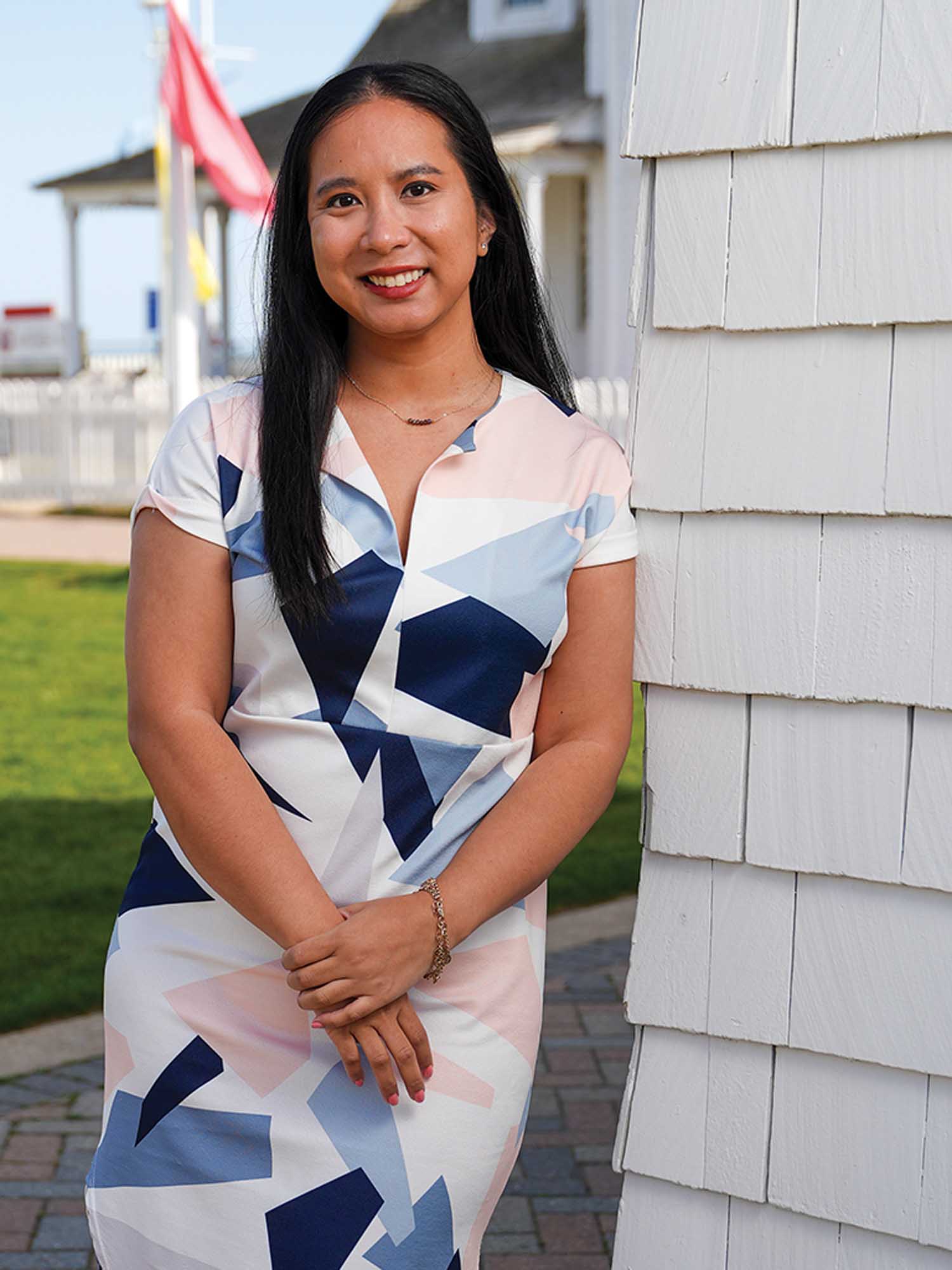
Kalyann Kauv, Pharm.D.
(B.S.’13/H&S; Pharm.D.’17/P)
Graduate student, College of Health Professions
“I started in 2009. I was part of a summer pre-matriculation program for entering freshmen who came from diverse backgrounds or are first-generation college students. I was a first-generation [student] and came from a lower socioeconomic background, so I thought it would really help me. And it did. We were in a cohort for two to three weeks, on campus with a couple dozen other students, learning from professors, learning about different health care careers, getting a feel for campus. That really helped. The first few weeks of school that semester, I felt so comfortable in a new city and at a new university. I knew where all my classes were. I wasn’t fazed by all the activities that were being thrown at [us], because there’s so much to do and it can be pretty overwhelming. [It] just made that transition a lot smoother for me. I appreciated having a program like that in such a huge transitional moment.
I was really excited about that [feeling of] independence, being in a new city on my own. I had kind of outgrown my high school world. I felt like college was a great fit for me, and it’s where I would develop and grow into my own person. I think that’s what I was most looking forward to — just figuring out who I was and being in a great environment of friends and in a city that helps you explore that.
It felt encouraging to be in a supportive environment in each phase [of my time at VCU]. Everyone is very open to identifying how your interests can [match with] programs or opportunities. Don’t be afraid to share what your interests are with someone because you never know if they might know someone who can [help] you to explore those interests further.”
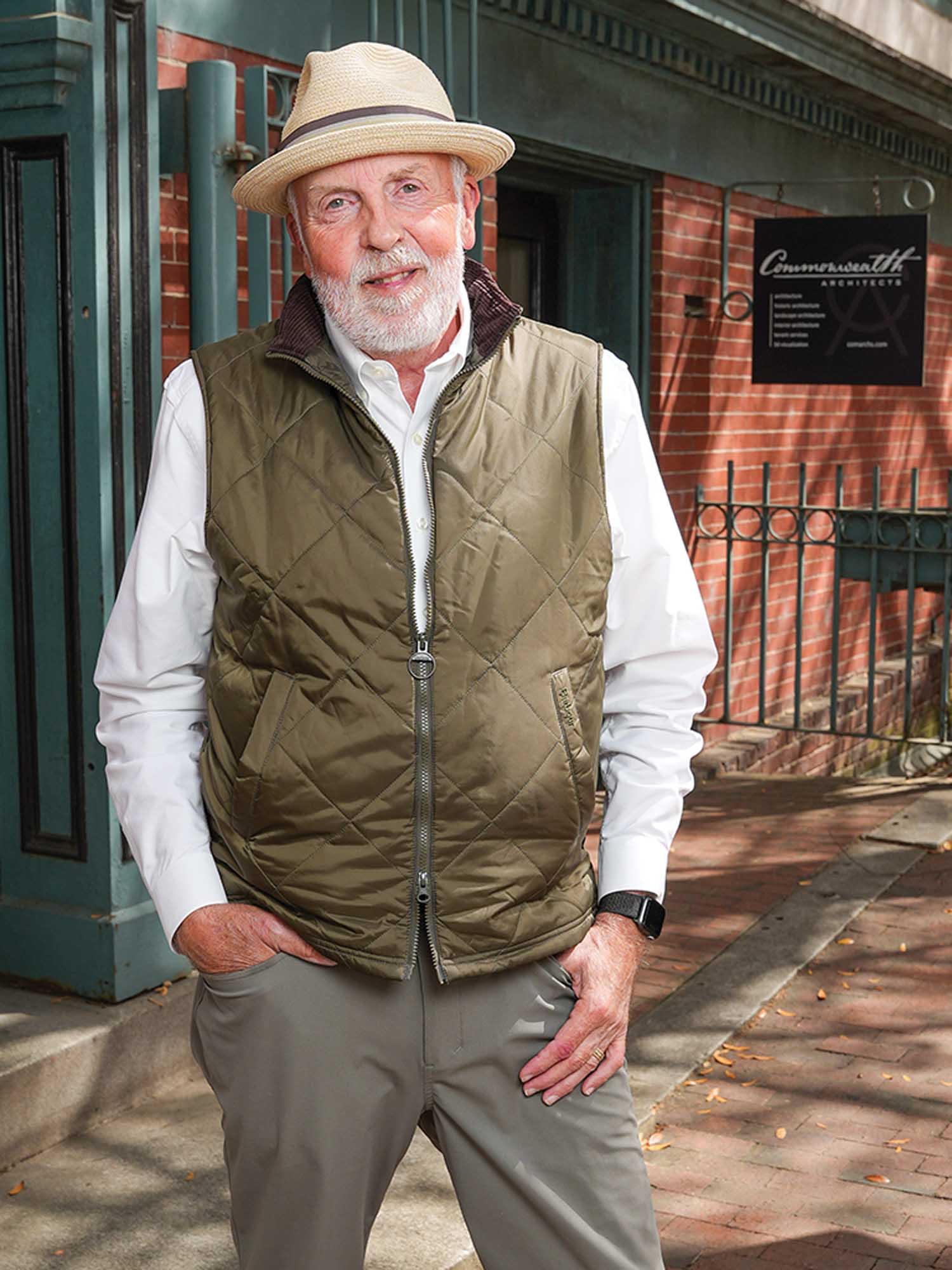
Michael Whitlow
(B.S.’74/MC)
“I was graduating from Northside High School in Roanoke County, Virginia. It was 1970. I [graduated] the same time as Bernard Harris, a famous basketball center who had thrown many elbows at me in the old days. He came to VCU, and I had gotten interested in VCU for two reasons: his interest, and more importantly, my cousin was here.
I really was taken by the energy of being in that urban environment. The excitement of being at VCU was you were in the city. The energy seemed to reflect more of the times. We had gay liberation, we had the anti-war movement, we had women’s liberation. And [VCU] was a really percolating place. What was really cool was VCU, even at that time, had a chip on its shoulder when it came to being different, in terms of how it involved so many different types of people.
To me, the real preparation for being [a college graduate] is the first year you arrive, [and] dealing with your independence. My wife and I sponsor a scholarship in mass communications for students who are giving back to the community. For me, that ability to connect your life to a greater purpose and then connecting through others who are networked into that purpose is sort of the genesis of whatever vocational interest you may have later on.
The key thing is to prepare yourself to be at a point where you step out into the world at graduation knowing you’ve done a good job of managing your independence while also not whiling away the hours reveling in your independence. This idea of connecting with others and being involved early and maybe giving up some of your independence to engage in a little interdependence is, to me, the biggest single thing that sets you right for that next step.”
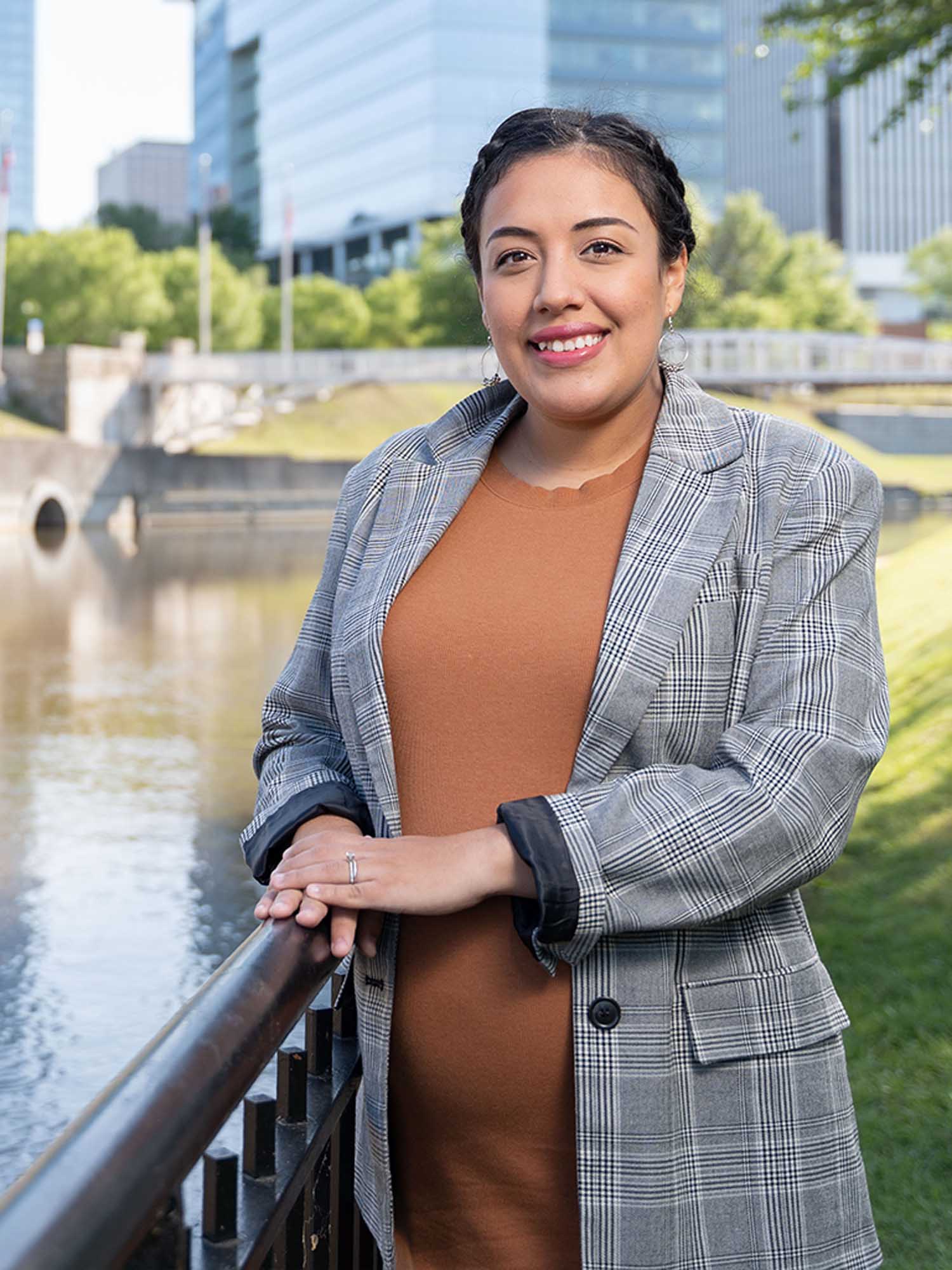
Faby Helme
(B.S.’16/B)
“I’m originally from Centerville, Virginia. [That last summer] I was a camp counselor for Therapeutic Recreation, a program for middle school and high school students who have disabilities. I was working full time, and I remember saving all my money. It was a busy summer. I was so ready to embark on this new journey. I recognized this was a new chapter, a new phase.
But the first couple of months in, it was like [I had] imposter syndrome, like, ‘I don’t deserve to be here.’ I remember leaning on a lot of upperclassmen. I was involved in AITP, the Association of Information Technology Professionals, and when I first joined, there were a lot of juniors and seniors at the time, and many were first-generation college students like me. Just being able to have friends who were also mentors, that was huge for me, because I remember thinking, ‘I’m the only one in my family to do this; why am I doing this?’
My husband [Michael Helme (B.S.’17/B)] and I are high school sweethearts and we decided to go to VCU together. It was great having a partner in crime. We were accountability buddies but also dating. And we pushed each other and were also each others’ champion.
That first year, there’s a lot of hesitancy to go to lunch with this person you met in your class or join this club or meet your professor. I just remember telling myself I was going to put myself out there, say ‘yes’ to a lot of opportunities and be as positive as I could. We would just go, whether it was an information session or … I remember randomly going to a poetry slam. I think if you have that attitude, it’s going to give you tons of different experiences and you will find your community.”
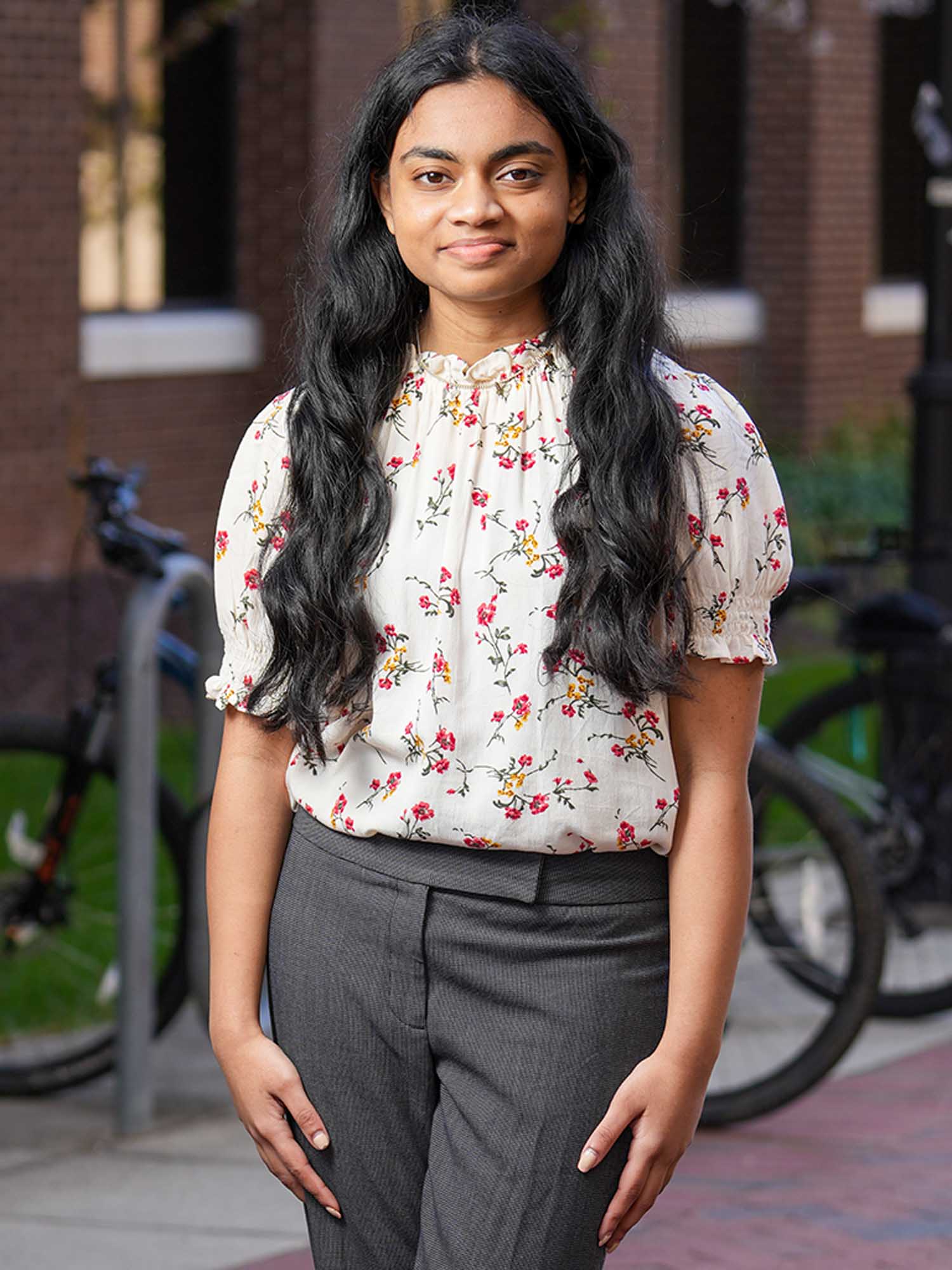
Ashley Victor
Undergraduate student, VCU Life Sciences, Class of 2023
President, Students Today Alumni Tomorrow
“I’m from Woodbridge, Virginia. [It] was the summer of 2019 and I remember I was truthfully very anxious. I was doubting myself. My sister [Carol Victor (B.S.’21/En)] had gone here before me and so I had already been to VCU a bunch of times. Richmond was already like my second home. But I didn’t know if it was the right decision for me. Over the summer I had problems getting my transcripts to VCU. I wasn’t sure about the financial aid I was getting. I was worried about money.
I do remember everyone around me saying, ‘Just stick with it, you will do fine. … The reason you are so anxious is because you care so much, and that’s a good thing.’ I even remember I skipped class one day in high school just to go talk to my guidance counselor. And she said, ‘Whenever you talk about VCU, I see a light in your eyes.’
I ended up believing everyone as soon as I started. The first day of class, I remember getting home and they had updated my scholarship, which relieved a lot of my anxiety. I remember that day knowing that [I made] the right decision.
I feel like a major thought running through [your] mind is, ‘Oh, I’m not ready for it.’ And I want [new students] to know that you have a huge, diverse community around you — people who are similar to you and people who are very different from you — and you can learn from each other. And that’s the purpose of going to college. I’d say what people told me: It’s good to be anxious and it’s good to care, [and] a bunch of other people are anxious and care and you [can] lift each other up.”
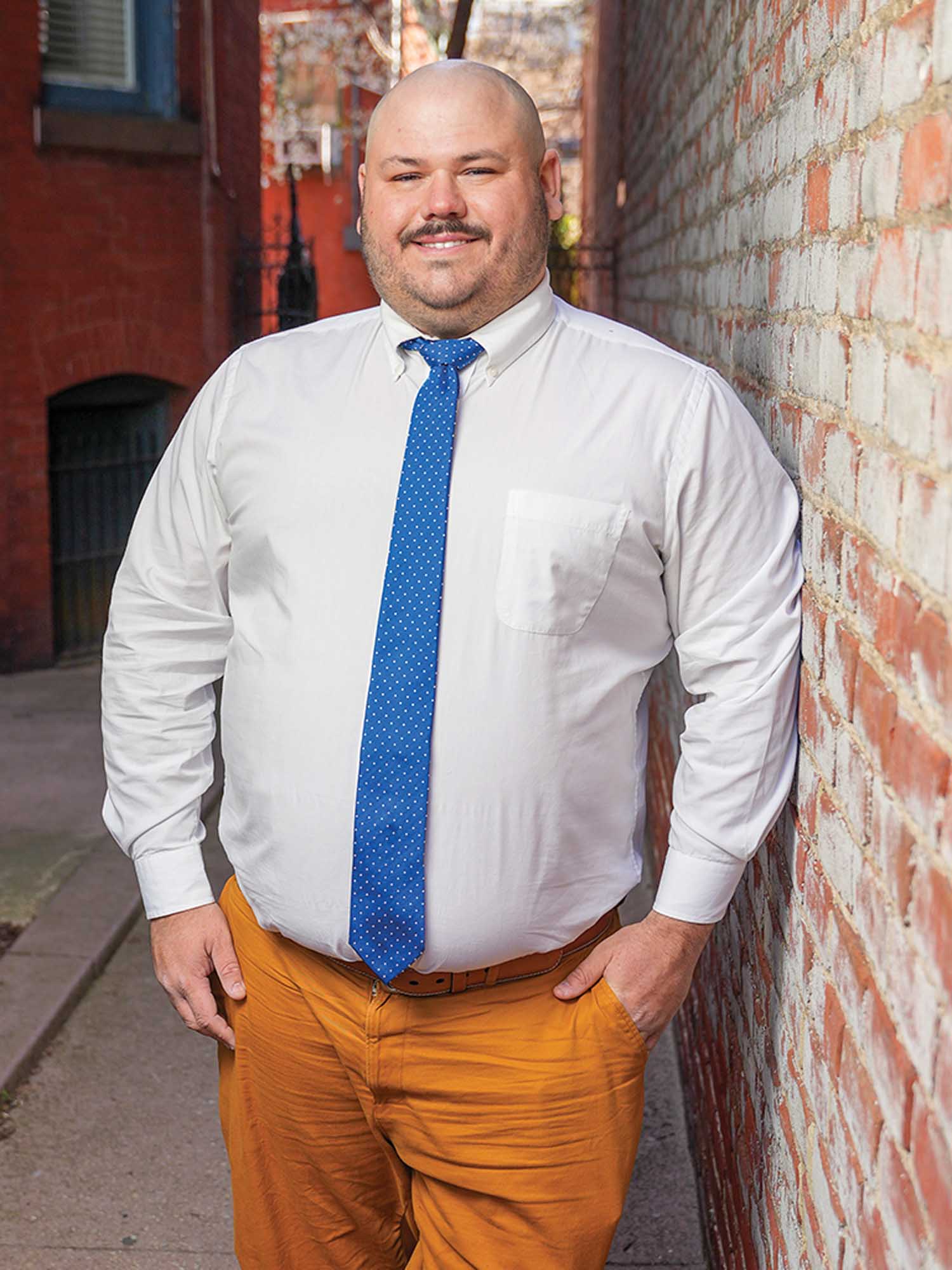
Nick Garcia
(B.A.’11/H&S; M.P.A.’13/GPA)
Doctoral student, School of Education
“I came to VCU as a freshman in 2007. I grew up in King George County, Virginia, and all my family is from there. It’s a small, rural town a little east of Fredericksburg. And I knew I wanted to go to a bigger school in a more urban environment. I toured VCU the day after the Virginia Tech shootings — me and a couple of friends skipped school. And the campus was so beautiful that spring day, and it really made me better understand what it meant to go to college in an urban environment. I was under the impression that it would be just moving from skyscraper to skyscraper, but really it was such a wonderful community and the campus was so gorgeous that something immediately clicked that this is where I wanted to be.
I was so excited to meet new people — just the idea there would be so many people to meet from different backgrounds. I was ready to immerse myself in such a diverse campus. I think that was the big draw for me — recognizing that VCU felt more like a part of the real world.
Before COVID, part of my job [as director of undergraduate academic advising at the L. Douglas Wilder School of Government and Public Affairs] was giving presentations to orientation groups when they would come on campus, and the pieces of advice I always give: One, go to class. Just showing up to class is the most important thing a student can do. Go, go regularly; don’t schedule 8 a.m. classes if you know you like to sleep in. Two, study things you are passionate about. It makes it more interesting to go to class when you are interested in the subject. And, three, don’t be afraid to change your major or take classes outside of an area you want to study.”
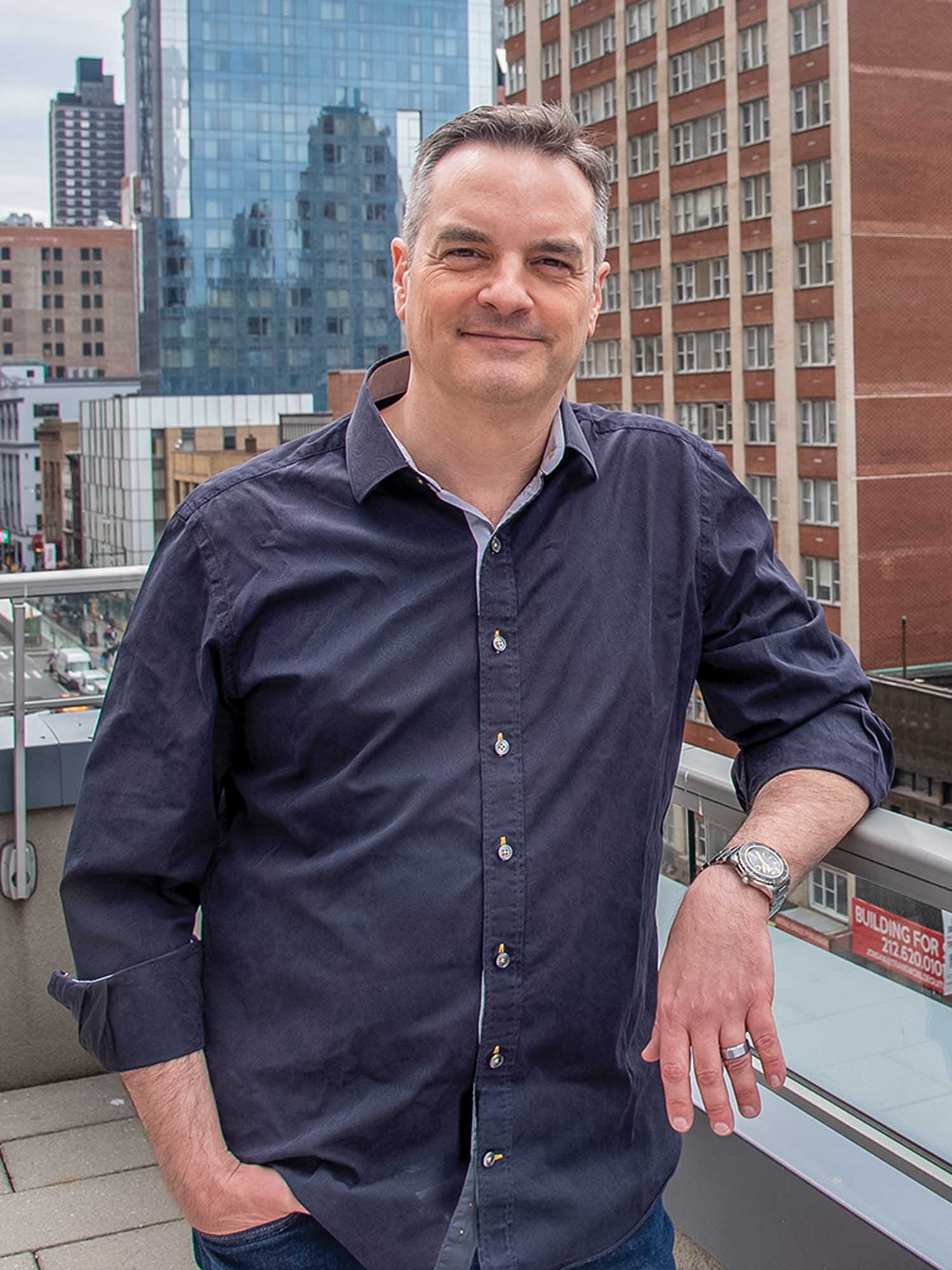
Todd Emerson
(B.A.’93/H&S)
“I started at VCU in 1989. I was 18 and had just graduated high school in Chesterfield County [Virginia]. I had a bunch of weird summer jobs, and I can’t remember which one it was [that year]. I believe I was laying brick floor tiles in a dairy warehouse.
I was excited to be independent and not living at home, but it also scared the crap out of me. I was anxious to get out of the high school environment and explore life in a university setting. I ended up living in Johnson Hall. There were some interesting and diverse characters there. One of the guys ended up becoming the lead singer of a band called Lamb of God, another is now the president of the VCU African American Alumni Council, Frank Dunn (B.S.’93/H&S).
My best teachers in high school taught more like university professors by encouraging discussion and communication and sharing ideas and perspectives. I looked forward to university classes that taught in a more collaborative way. The cool thing about English 101, 102 and even later classes was I was with people getting degrees in dance, art, engineering and people I normally wouldn’t have gotten to meet.
I would encourage new students to embrace the diversity of people and ideas at VCU. VCU’s diverse campus allows you to meet all kinds of people from all walks of life, and I think that was a valuable part of my education. I was 30 minutes from home but in a whole different world.”
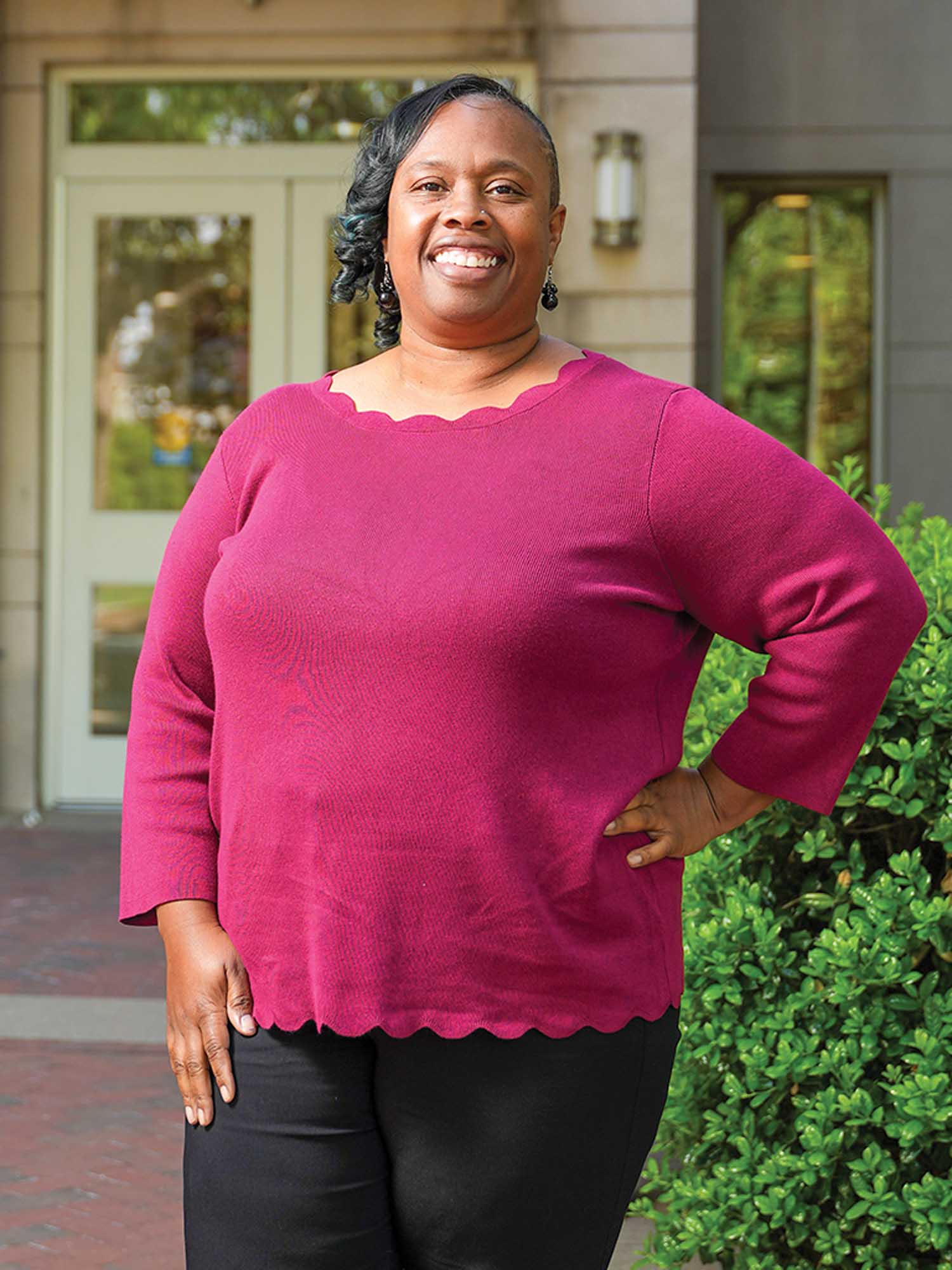
Shenita Williams, Ph.D.
(B.S.W.’93/SW; M.S.W.’95/SW; Ph.D.’22/E)
“I’m from Hampton, Virginia, and I graduated from high school in 1989. I grew up in a family where education was important, but college wasn’t pushed. In my senior year, I remember a friend asked me what my plans were after graduation. And I honestly had no clue. She told me she applied to VCU. I had no idea what VCU was, but the way she described it sounded good. So I applied and was accepted.
My parents were pleased, and I was excited. But I’ll tell you: I’ll never forget standing on the steps of Rhoads Hall as my parents drove away and I was like, ‘Whoa. I am on my own.’ There were mixed feelings: excitement but also thinking about what my parents taught me — to do my best. I wanted to make them proud, and I knew that my best was going to be good enough.
My advice for the summer as you head off to college: Have a ball. Enjoy. Revel in the excitement and opportunity [you have] to see and experience life outside of your family, your neighborhood, your community.
I think about [what it takes] to be a whole student, [and it’s] not just about academics. In many ways you will get the academic part — it will be poured into you if you go to class and do the work — but there are so many other things that can be poured into you. And that’s about learning from other people, people who are different — different cultures, ethnicities, races, lived experiences. And then there’s also this pouring out, giving of yourself, and sharing who you are and your own experiences.”
– James Irwin is managing editor of the alumni magazine.